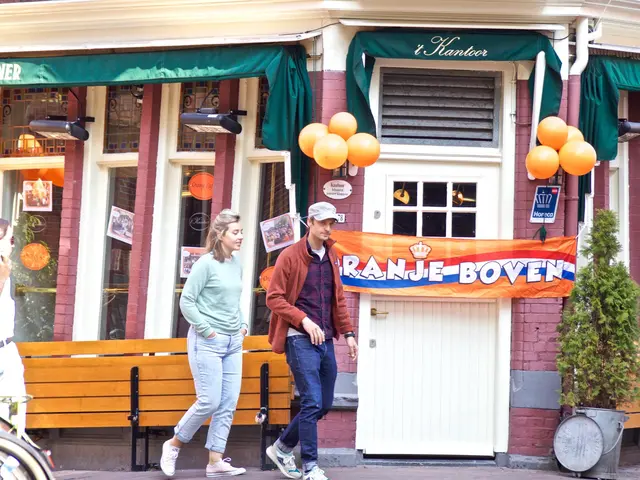As more countries worldwide have seen a continuous slowdown in the coronavirus infections and deaths, governments began to take steps to further ease restrictions on social and economic activities.
After weeks of strict lockdowns to contain the virus' spreading, some countries including the Netherland, Belgium, Uganda and Israel have announced a series of measures to gradually reopen their economies while maintaining social distancing orders in public places.
Dutch Prime Minister Mark Rutte said Wednesday that the country will begin to lift some of the restrictions next week after the nearly-two-month lockdown and the phasing out is expected to take over four months.
According to Rutte, beauty salons, hairdressers and massage practices are allowed to reopen on May 11, while restaurants, cafes, cinemas and museums are to be able to reopen on June 1 under certain regulations.
Under the conditions that the figures are still moving in the right direction as of Sept. 1, the doors of fitness clubs, saunas, wellness centers, sport club canteens, coffee shops and casinos will open up.
"Caution now is better than regret afterward. We can only unlock the Netherlands if everyone continues to behave sensibly," Rutte said.
The National Institute for Public Health and Environment announced Wednesday that the number of infections in the Netherlands rose by 232, about one-sixth of the highest daily growth of confirmed cases.
Belgian Prime Minister Sophie Wilmes announced relaxing measures on Wednesday, allowing shops to open from Monday and people to host family members and friends at home from Sunday.
It paved the way for the celebration of the country's Mother's Day, which falls on Sunday. Wilmes said households can invite up to four people of the same group to their homes.
People are advised to keep social distance and wear face masks in stores. Meanwhile, restaurants, bars and cultural venues will remain closed.
Belgium, with a population of about 11.5 million, is one of the European countries hardest-hit by the fatal disease. In the last 24 hours, 272 new infections of COVID-19 have been confirmed, bringing the total infection cases to 50,781, the public health institute Sciensano said Wednesday. The new cases' growth rate in the country has fallen steadily from early April peaks.
In Uganda, the government on Monday extended the nationwide lockdown for another 14 days, while easing some of the 35 restrictions, allowing wholesalers, hardware shops, repair workshops and garages, as well as the insurance industry to restart their work.
Restaurants in the African country are also allowed to operate, but only to provide take-away meals.
"We must therefore, basing ourselves on the limited preparations, start slowly and carefully to open up without undoing our gains so far in fighting COVID-19," said President Yoweri Museveni.
According to Israeli Prime Minister Benjamin Netanyahu's newly-announced measures to resume normal life, shopping malls, markets and gyms in the country are scheduled to reopen on Thursday, subject to hygiene and keeping distance restrictions.
Israel has slowed its infection and death rate since mid-April. The health ministry reported 21 new coronavirus cases on Wednesday, the lowest daily increase since March 15 when 20 new patients were added.
The total number of COVID-19 cases has reached 16,310, of which 5,434 are active ones, according to the ministry.
Netanyahu also said on Monday that the country would lift the bans on venturing more than 100 meters from home and visiting elderly family members in their homes. Meanwhile, the government allowed gatherings of up to 20 people.
If there is no worsening of morbidity data, Israeli soccer leagues will resume by the end of May.
 简体中文
简体中文

